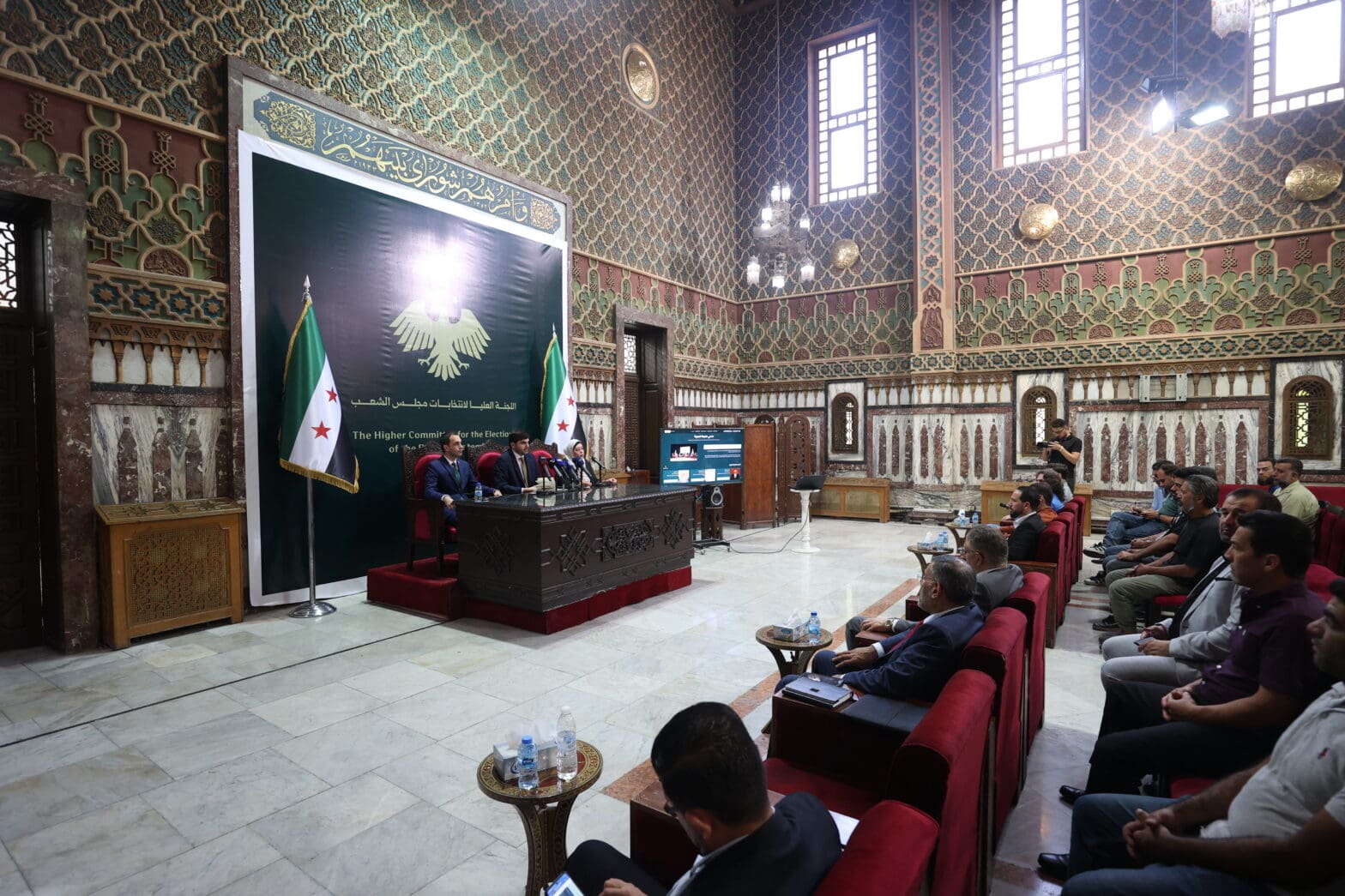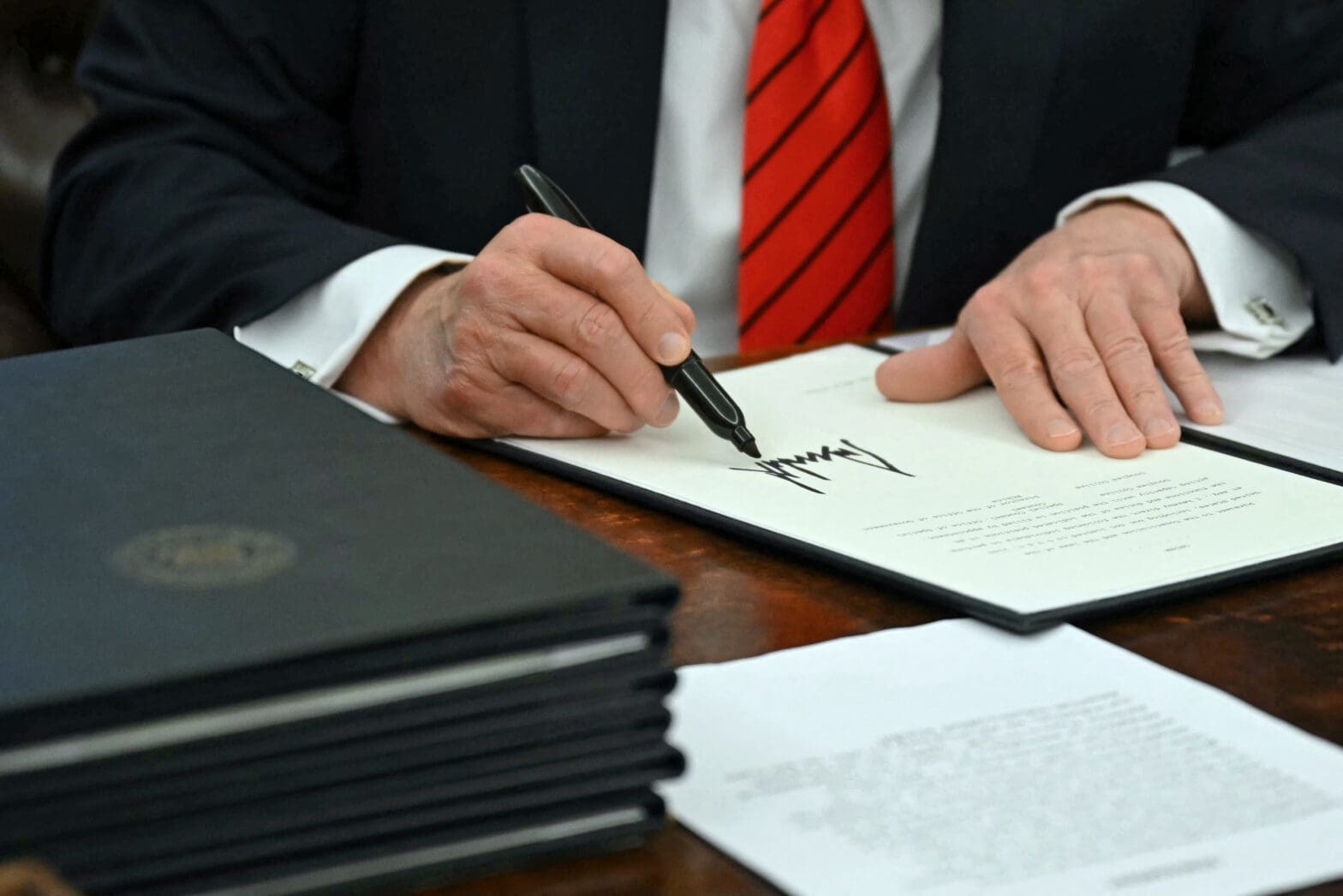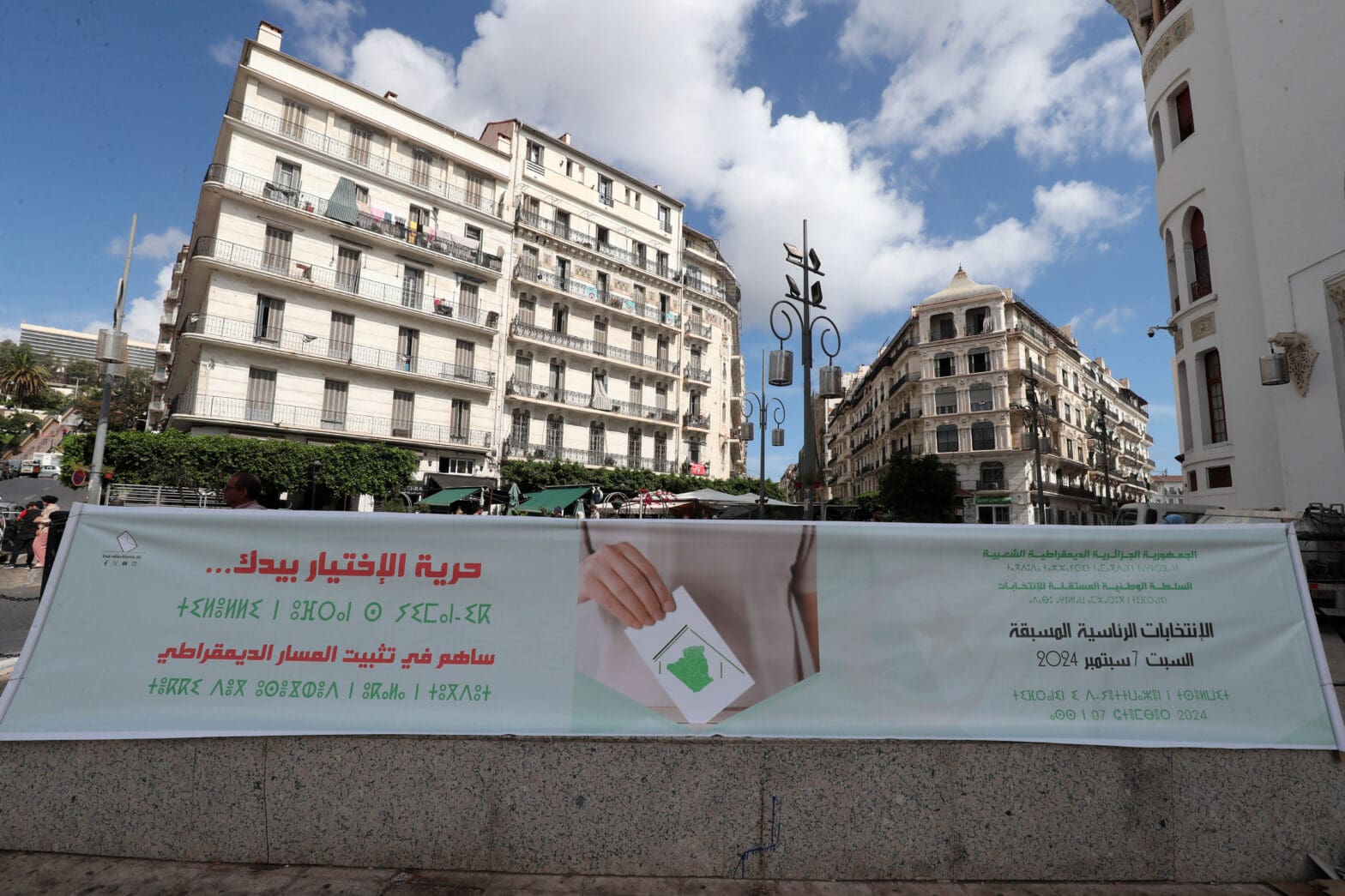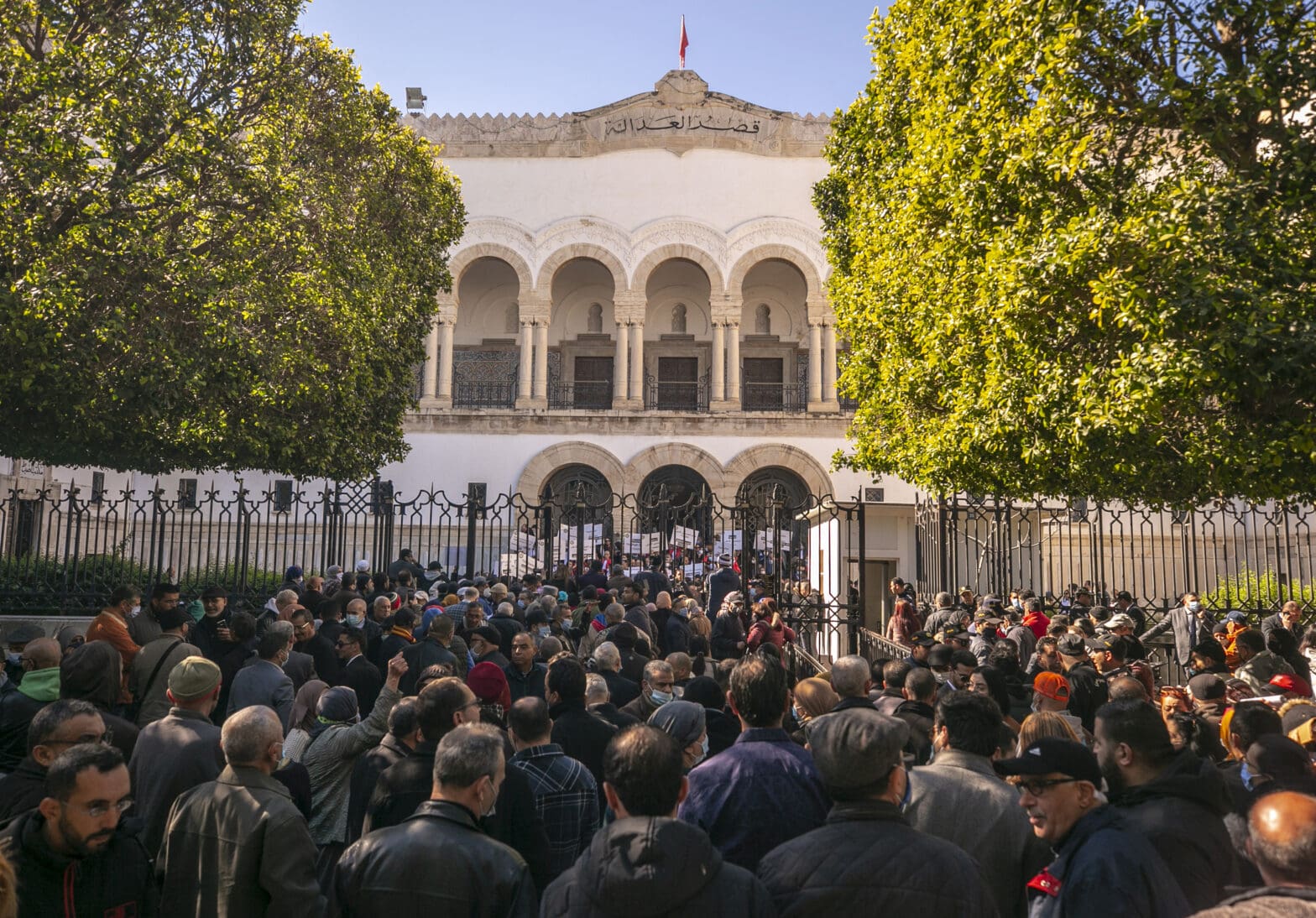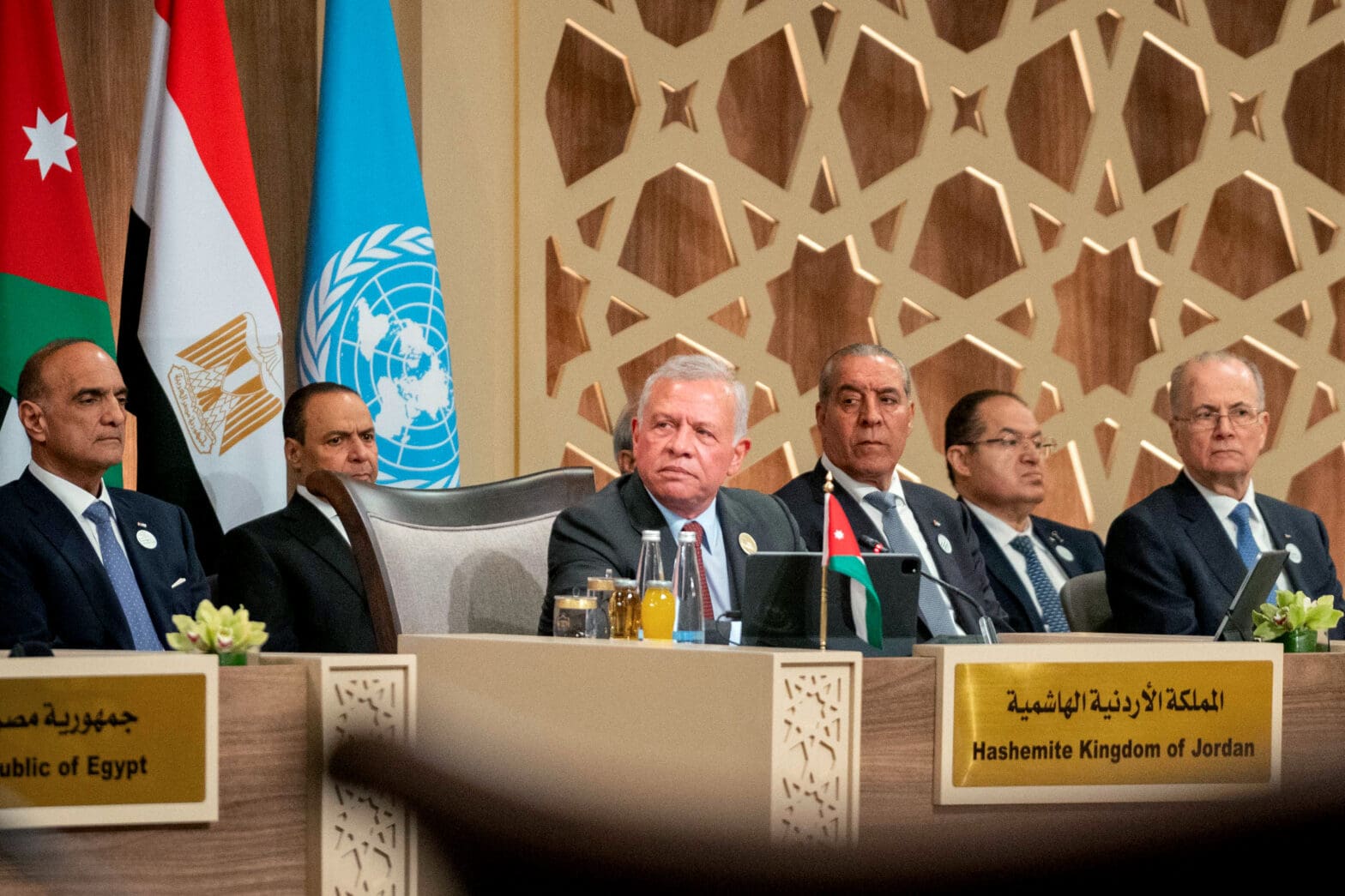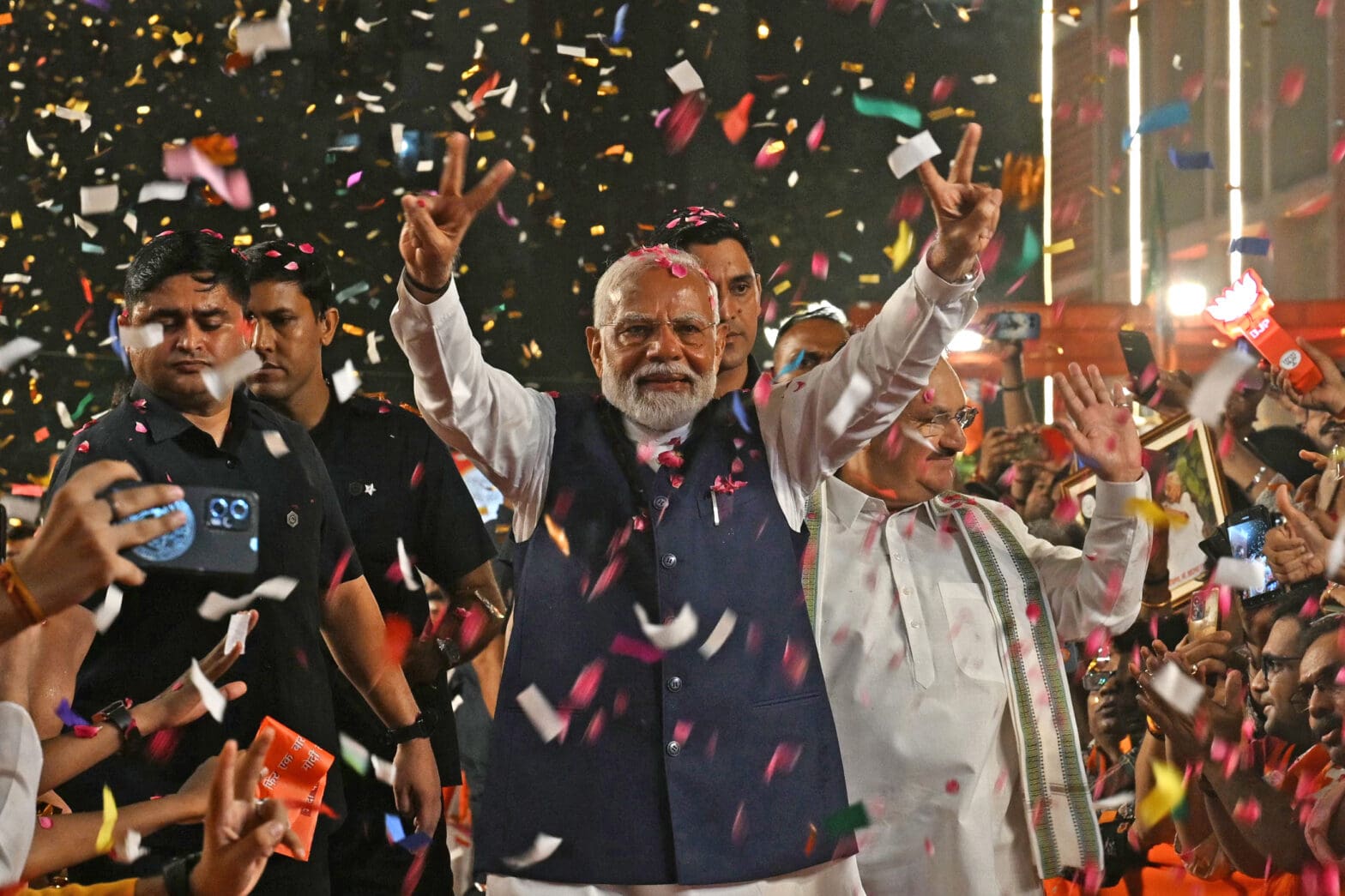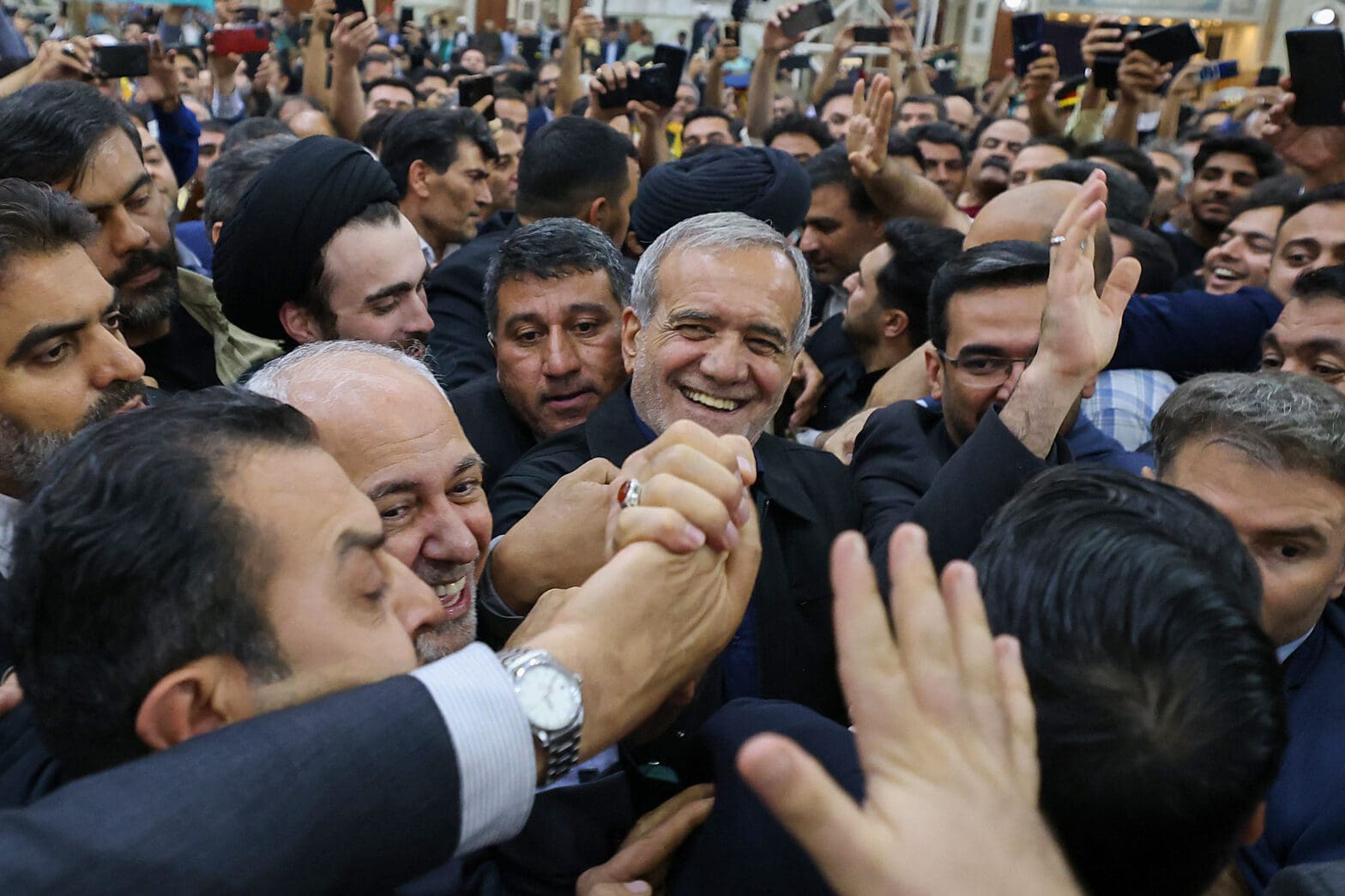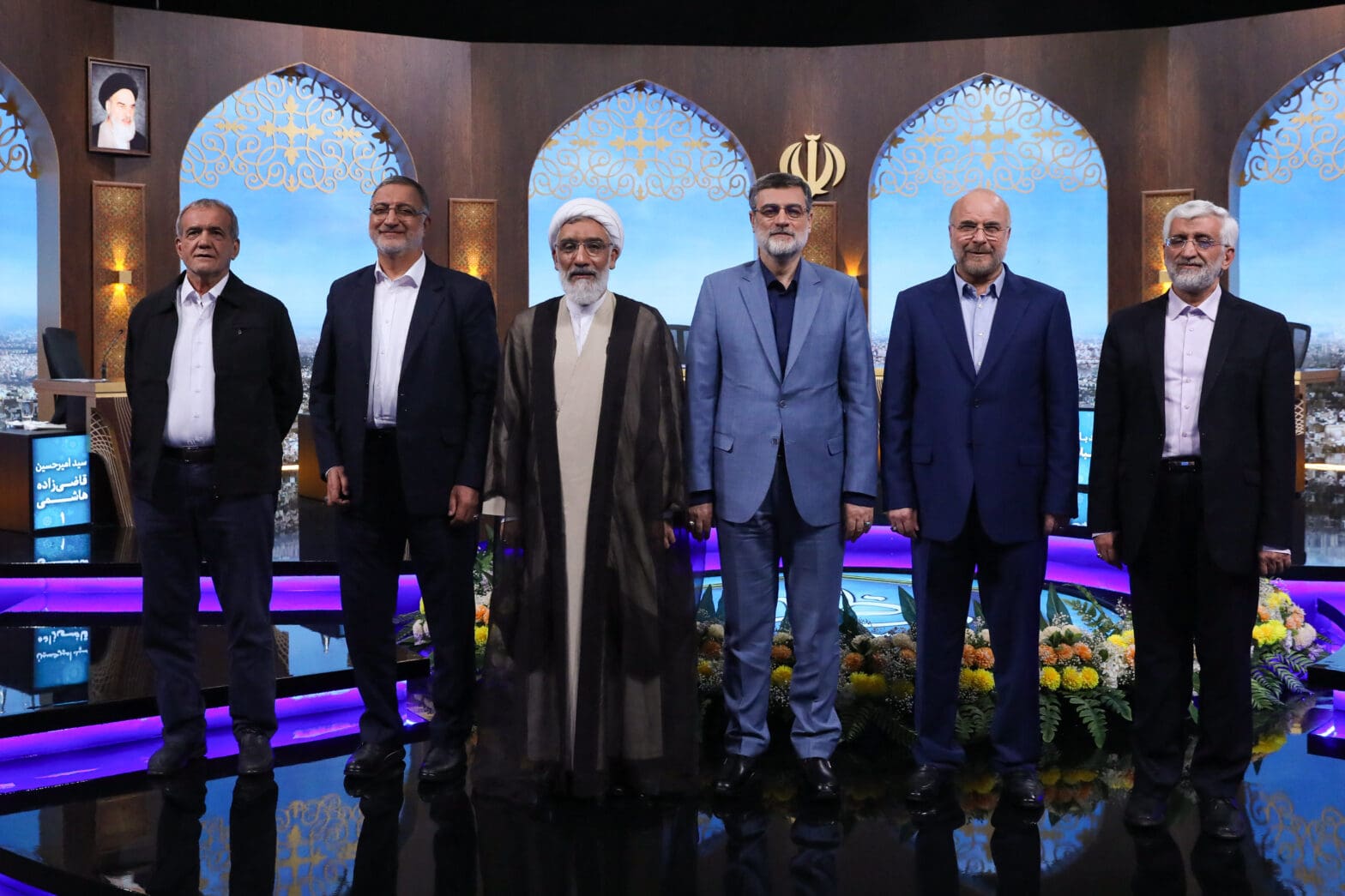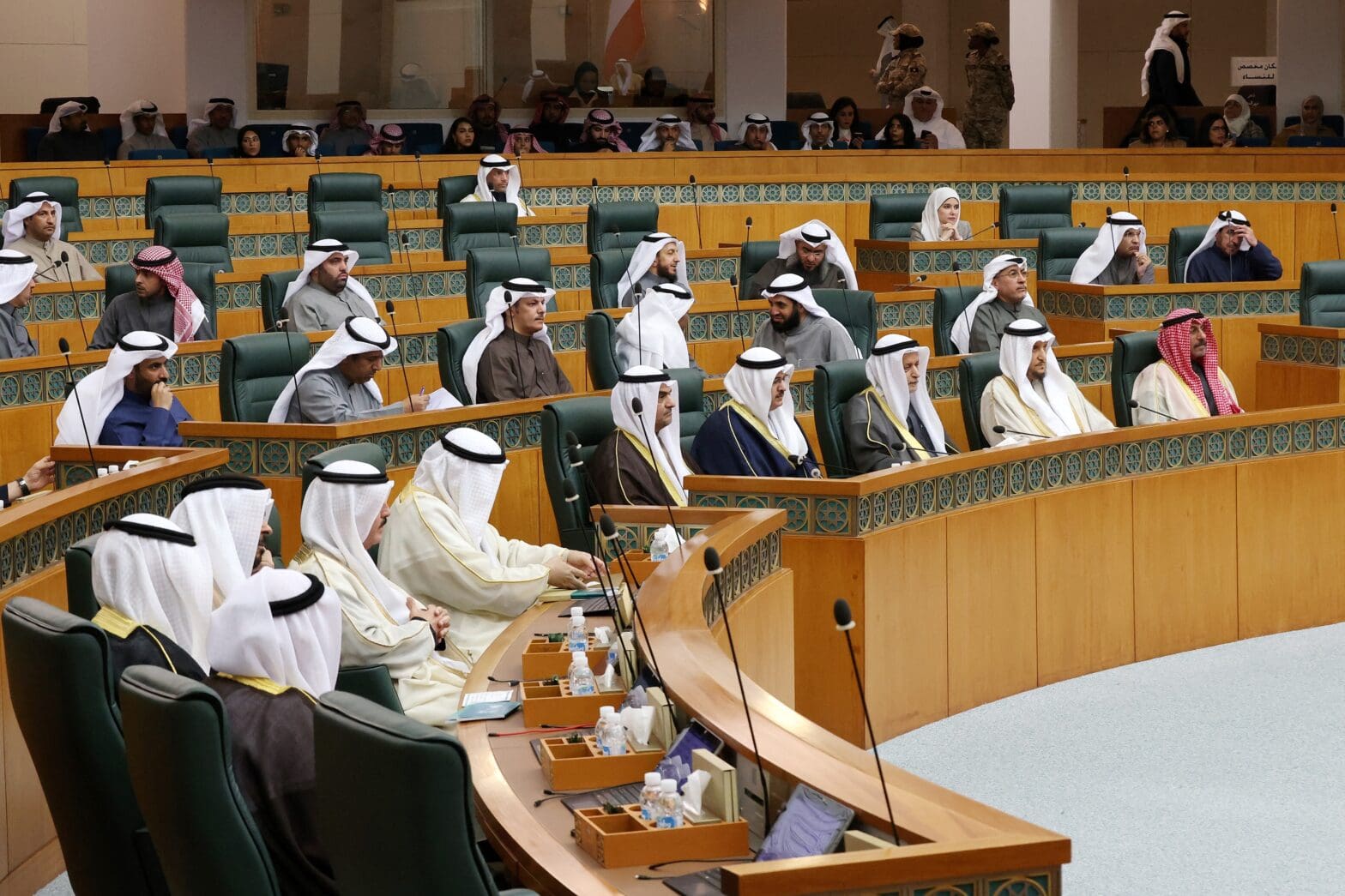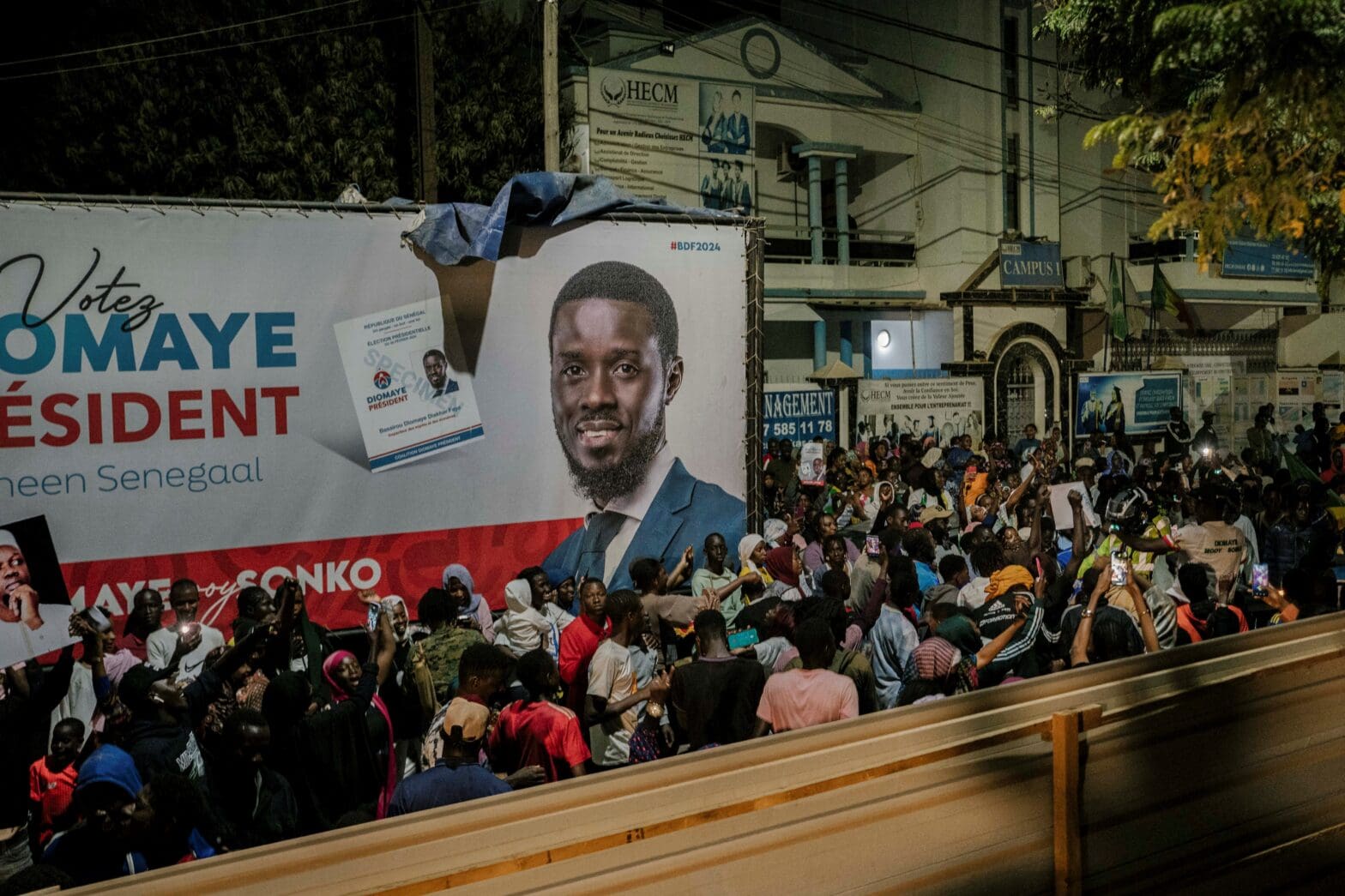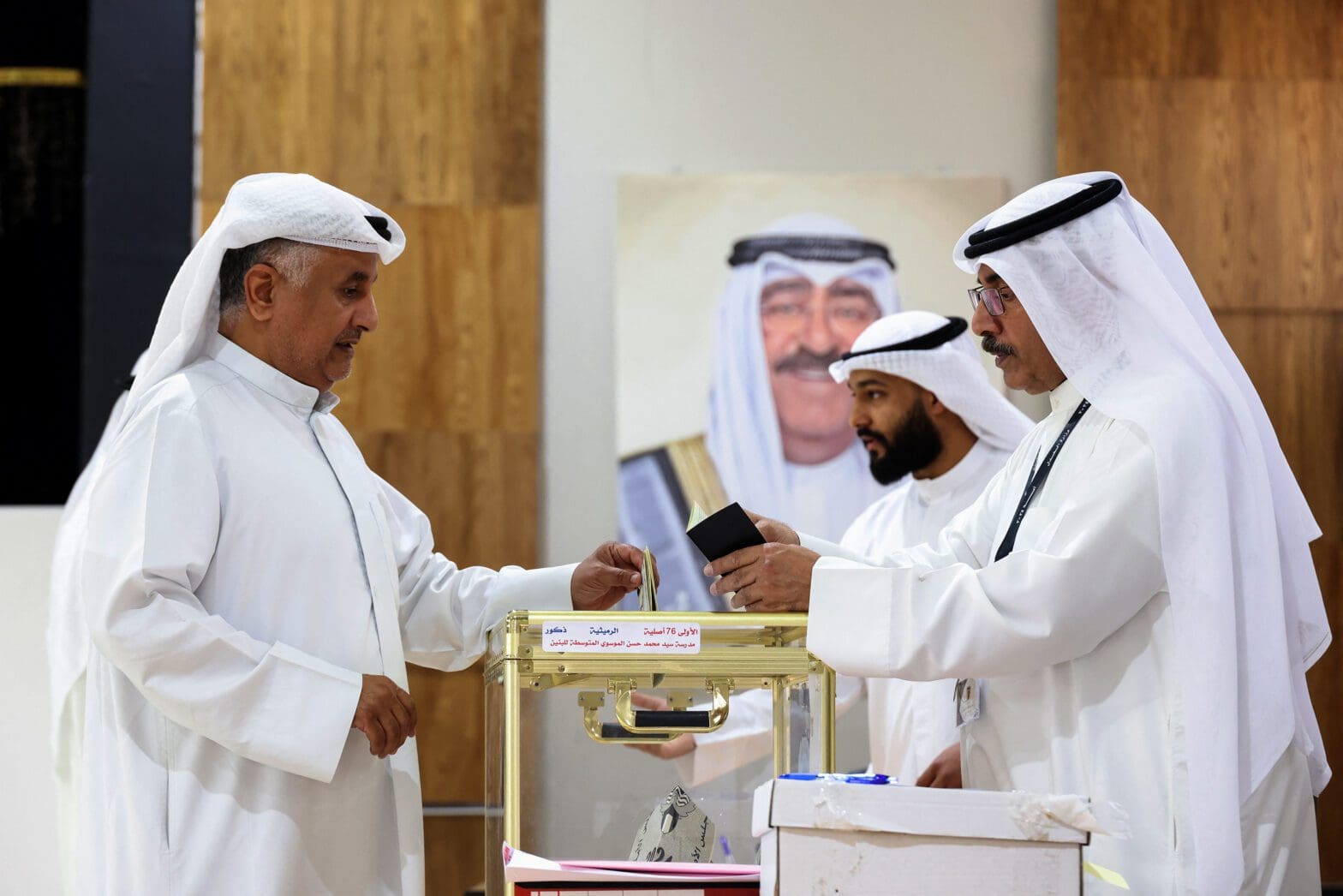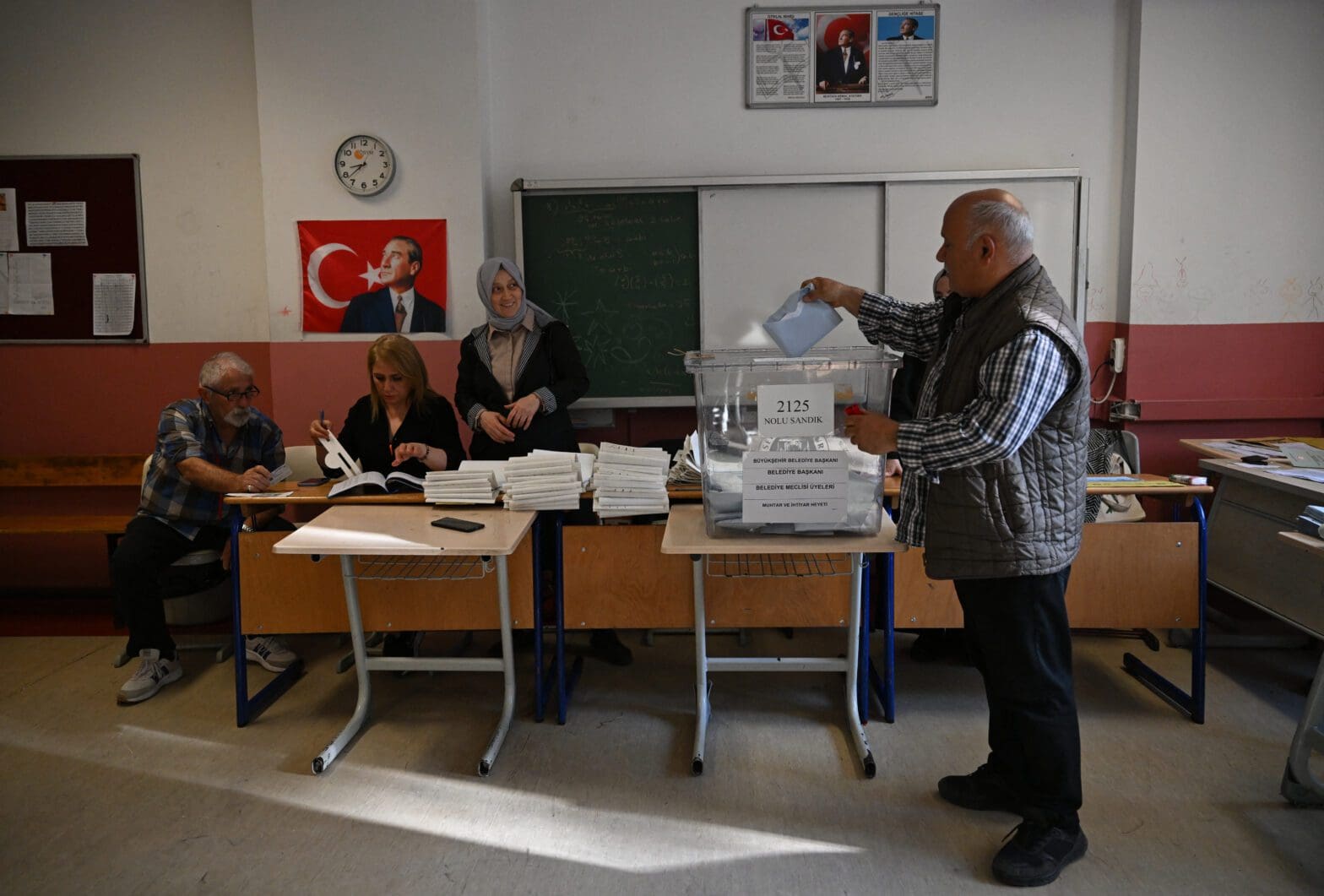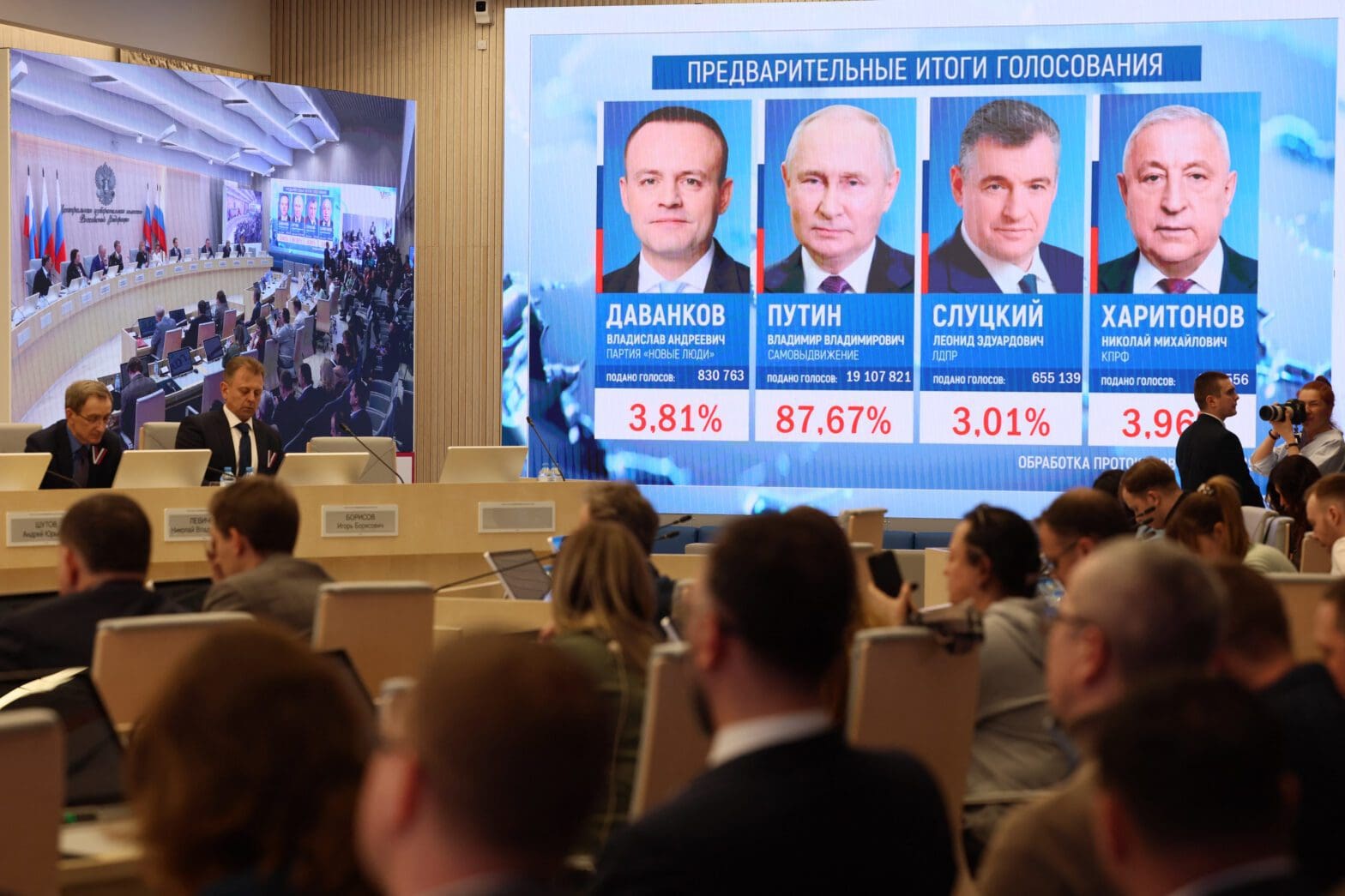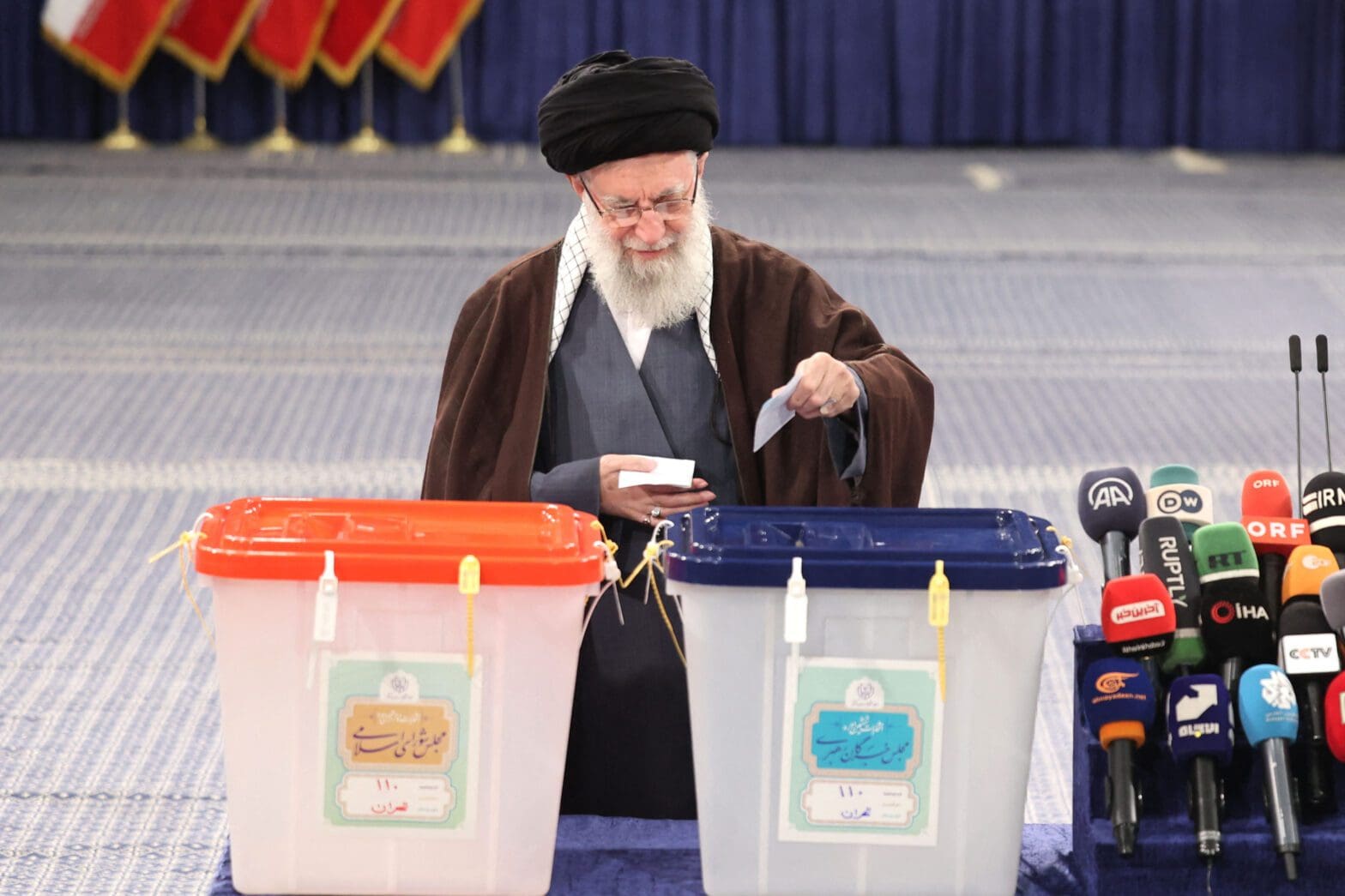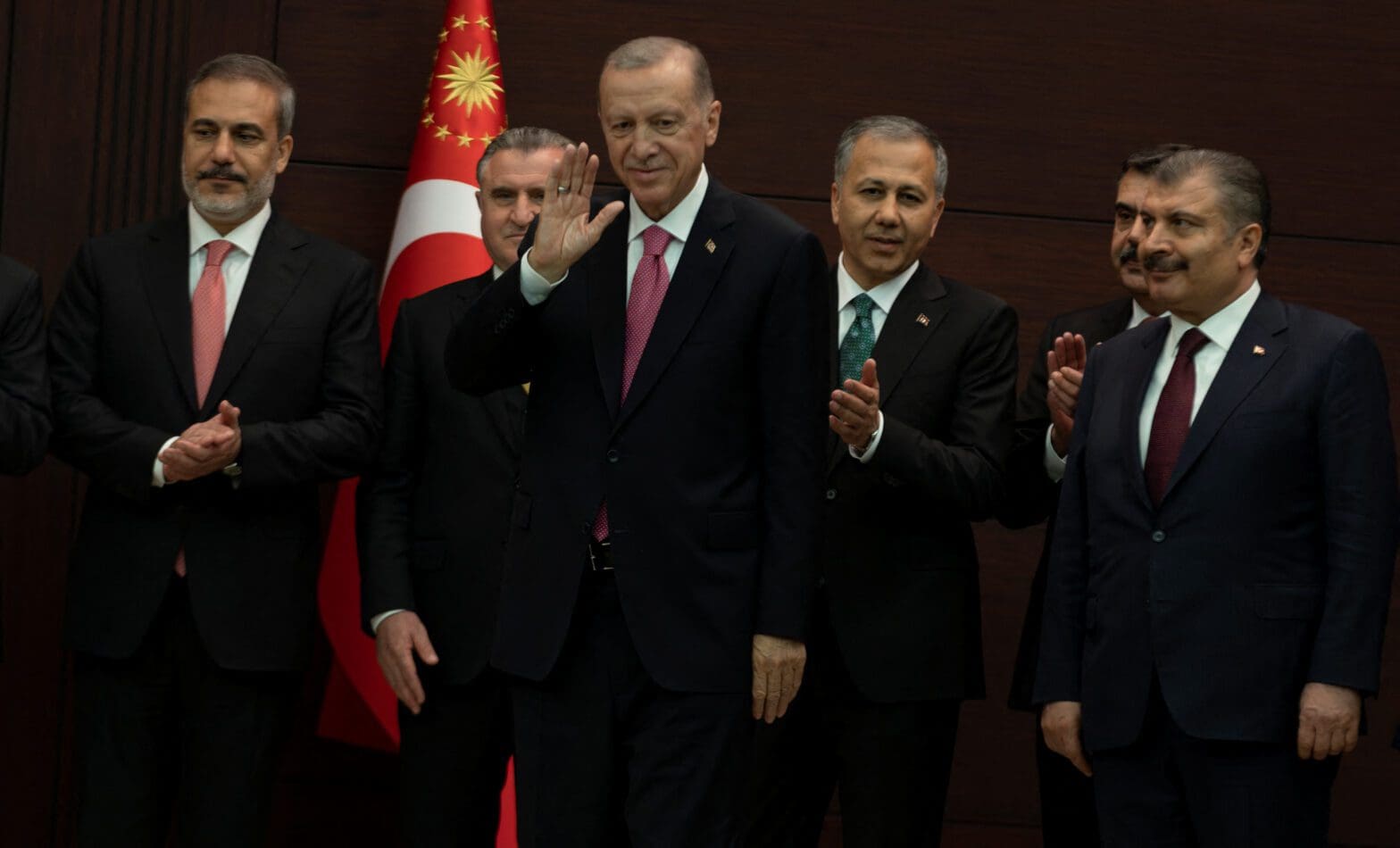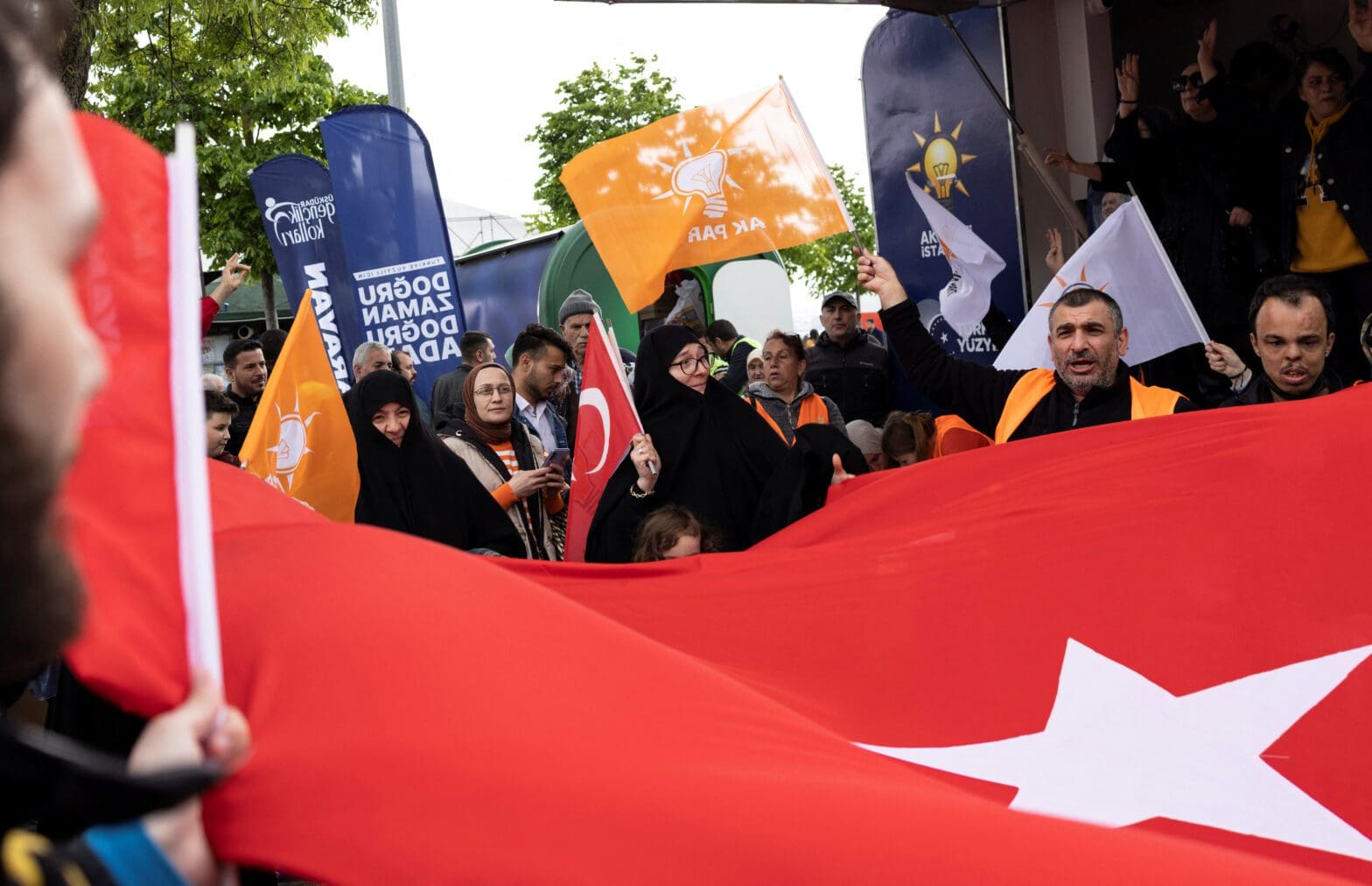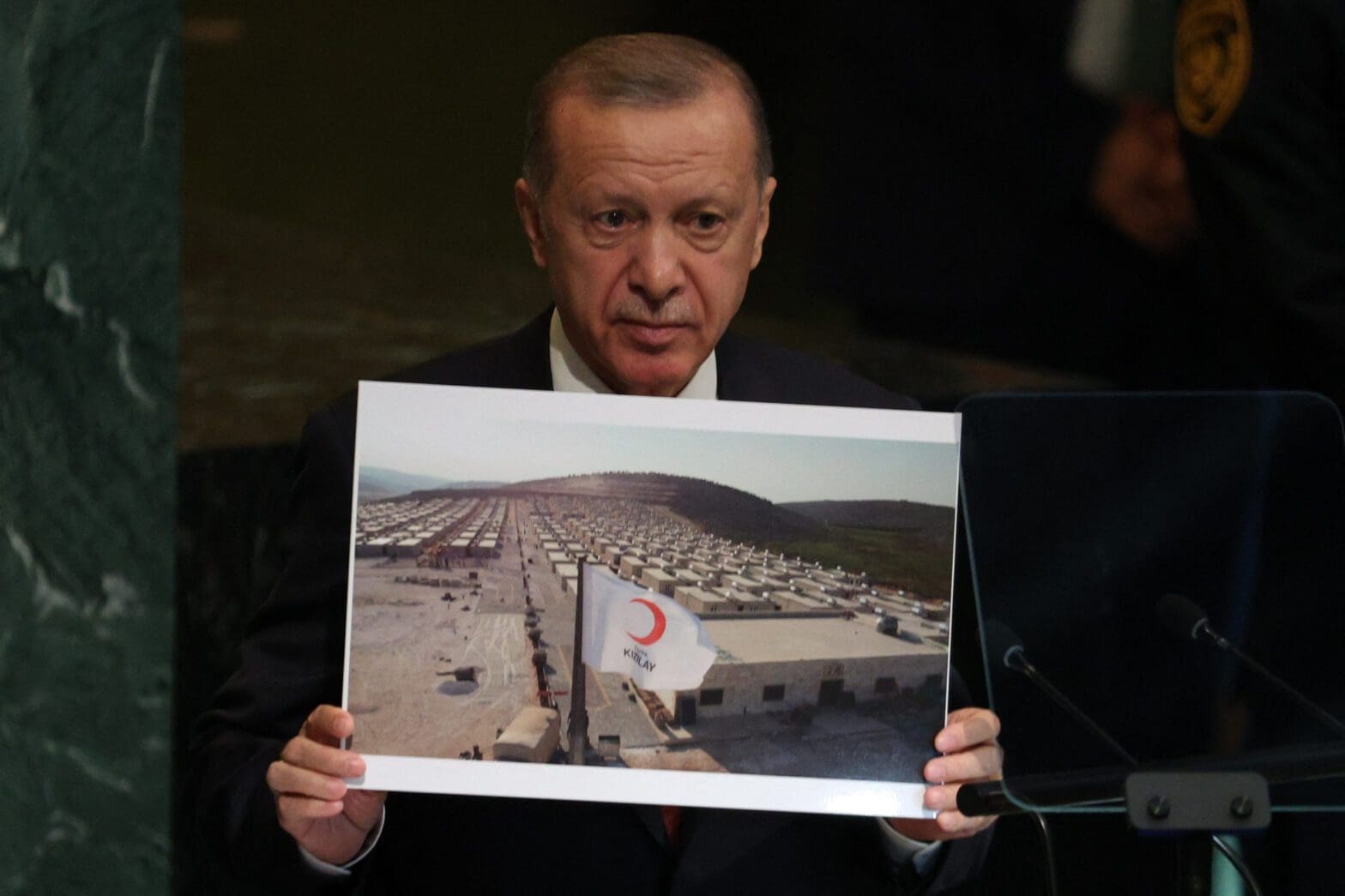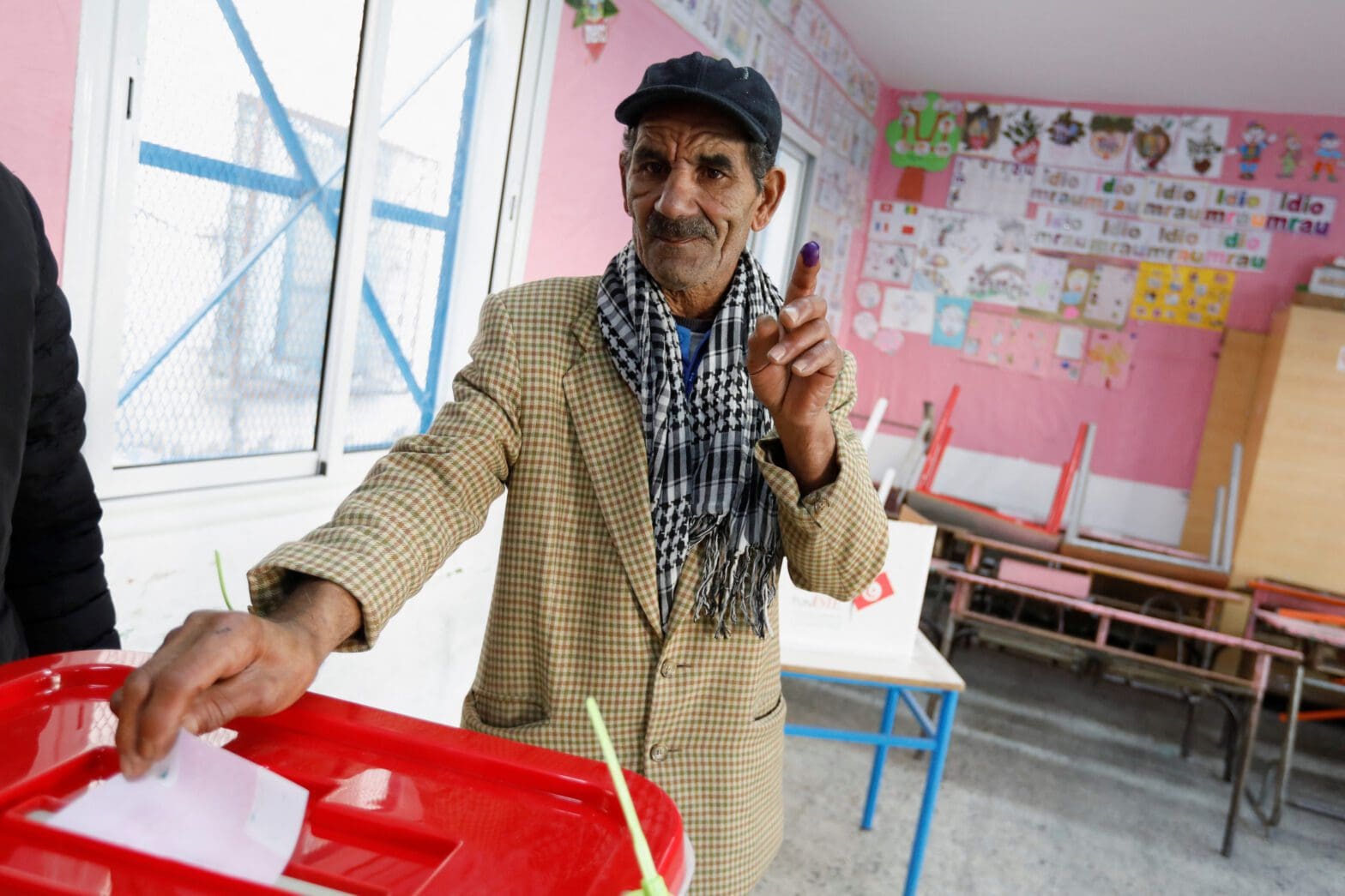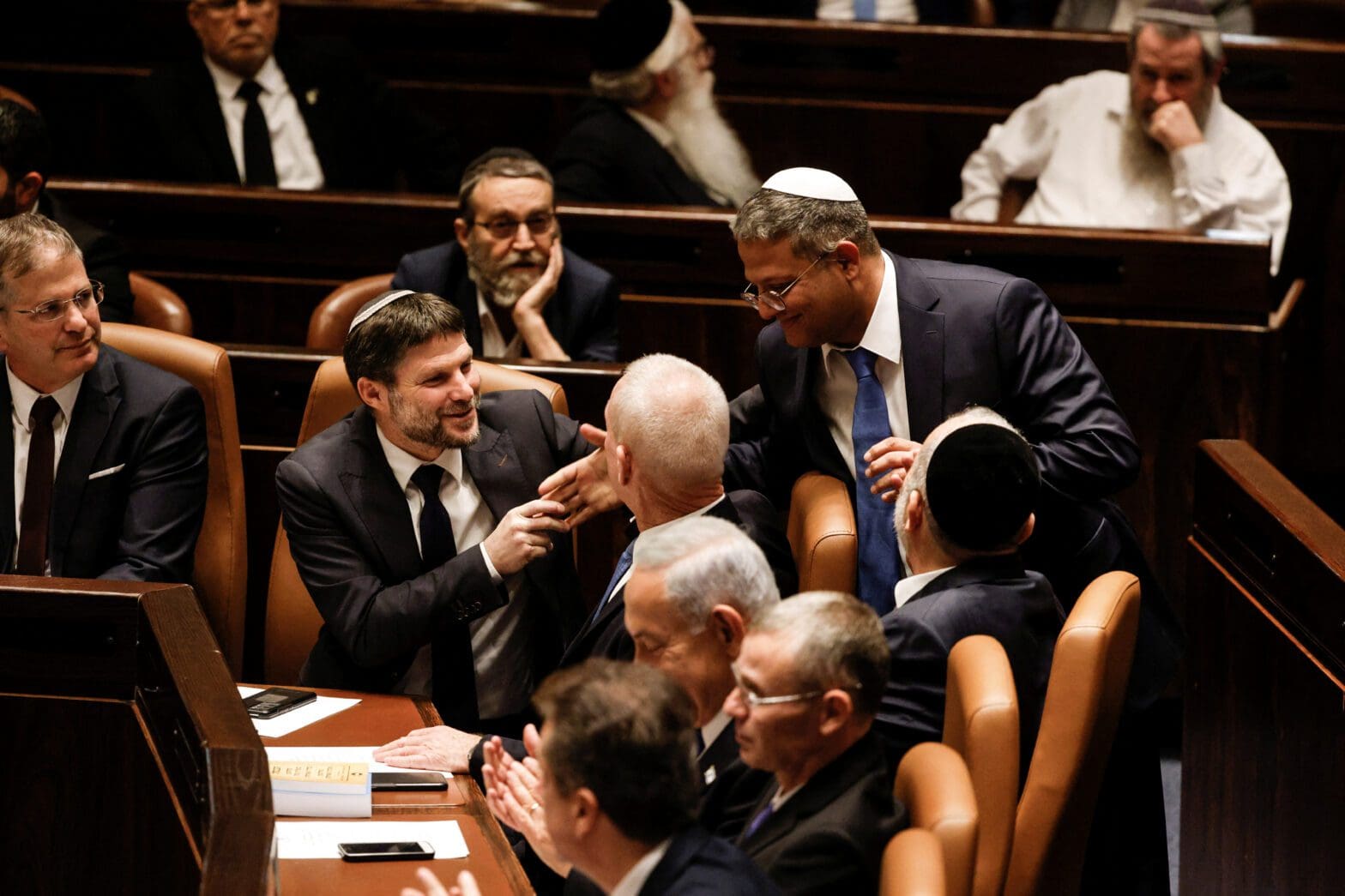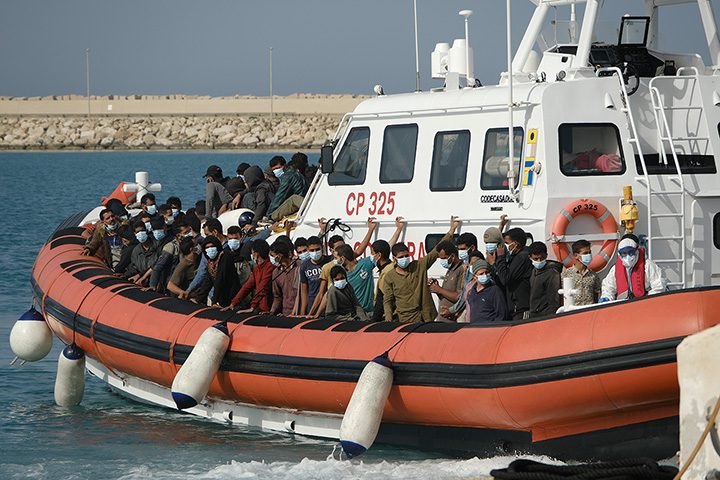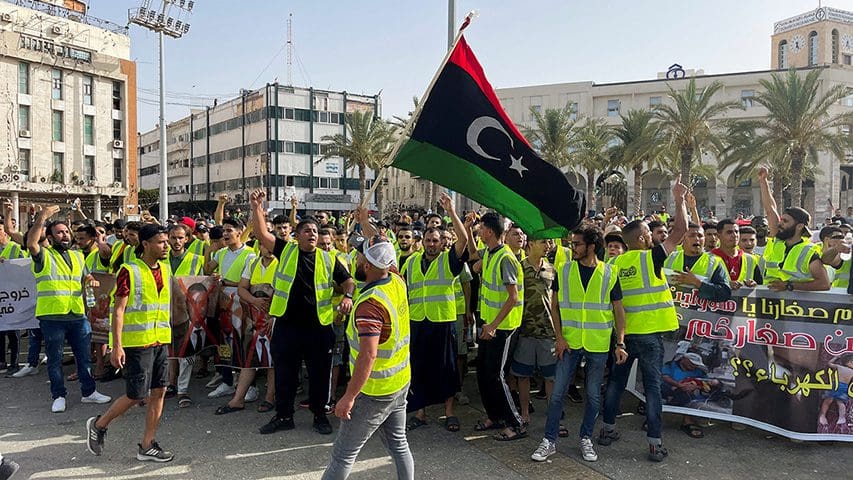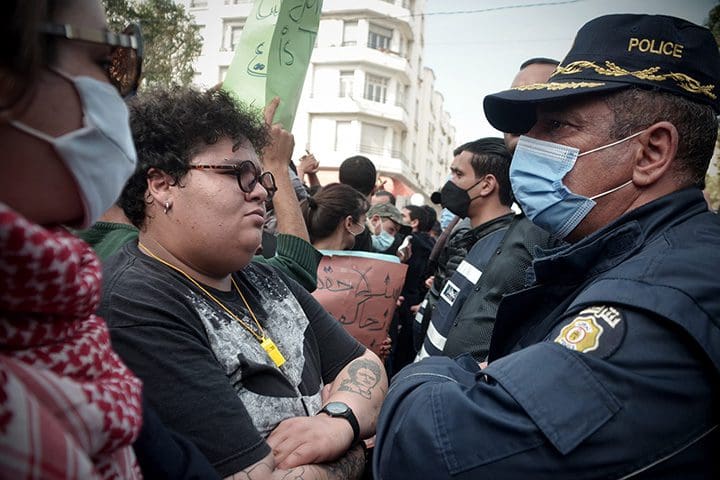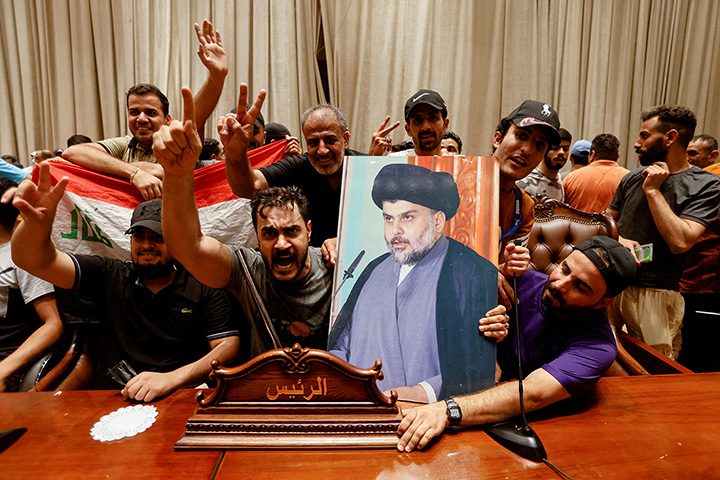Since the fall of Bashar al-Assad last December, Syria’s transitional authorities have revealed a dilemma at the center of the country’s new political order. What looks on the surface like electoral tinkering instead points to something deeper: a crisis of legitimacy, state capacity, and sovereignty, which will define Syria’s transition and reverberate across the region.… Continue reading Syria’s First “Free” Parliament Masks Fragmentation and Executive Control
Afkar Issue: Elections
The Art of Disruption: How Trump’s Foreign Policy is Impacting MENA
Since returning to office on January 20, 2025, Donald Trump has issued 67 executive orders, more than double any other president in American history. Given that some of those orders have serious implications for the Middle East and North Africa, Afkār has compiled views from Middle East Council on Global Affairs scholars to analyze some… Continue reading The Art of Disruption: How Trump’s Foreign Policy is Impacting MENA
Trump’s Return and Implications for the Middle East
On November 6, within hours of closing the polls, Donald Trump was declared the winner of the 2024 presidential election in the United States, defeating Vice President Kamala Harris by a wide margin. Trump’s remarkable triumph, which will return him to the White House after his defeat to Joe Biden in 2020, comes at a… Continue reading Trump’s Return and Implications for the Middle East
What Algeria’s Upcoming Elections Mean for the Next Five Years
On September 7, Algerians will head to the polls to elect their president. The outcome, however, is already a foregone conclusion. President Abdelmadjid Tebboune, running for his second term, is certain to win. Tebboune’s continued rule is assured because the military, the true power brokers in Algeria, have deemed him a suitable figurehead. His initial… Continue reading What Algeria’s Upcoming Elections Mean for the Next Five Years
How Tunisia’s Anti-Corruption Campaign Is Putting Its Next Election into Question
On August 5, a Tunisian court sentenced four potential presidential candidates on charges of buying endorsements and banned them from running in the upcoming elections slated for October 6. Among the four were the prominent politician and former Ennahda leader Abdellatif Mekki and the activist and TV host Nizar Chaari. In addition, the key opposition… Continue reading How Tunisia’s Anti-Corruption Campaign Is Putting Its Next Election into Question
Jordan’s Dilemma: Between Israel’s Sword of Damocles and Iran’s Axis of Resistance
The ongoing Israeli war on Gaza is seen by the Jordanian government and public as an existential threat. Despite credible accusations of genocide, Israeli Prime Minister Benjamin Netanyahu is prolonging, expanding, and escalating the offensive, which has led to mounting pressure on neighboring Jordan. From the potential forced displacement of Palestinians from the West Bank… Continue reading Jordan’s Dilemma: Between Israel’s Sword of Damocles and Iran’s Axis of Resistance
How Big a Role Will Gaza Play in the U.S. Election?
One of the great ironies of American politics is that despite the country’s immense power and influence in the world, U.S. foreign policy and international affairs hardly factor into the calculus of most American voters. The 2024 presidential race may be different, however. Since October 7, 2023, the Hamas-led attack on Israel, and Israel’s catastrophic… Continue reading How Big a Role Will Gaza Play in the U.S. Election?
Interview: The View from MENA on France’s Elections Results
During recent elections to the European Parliament, France’s far right National Rally (Rassemblement National) party led by Marine Le Pen won a resounding victory. In a surprise response, French President Emmanuel Macron dissolved his country’s parliament and called for immediate elections. Yet, despite a strong showing in the first round, the National Rally ultimately came… Continue reading Interview: The View from MENA on France’s Elections Results
India’s Mideast Relations Should Continue Apace in Third Modi Term
India’s recent election was a 44-day “festival of democracy” that targeted 900 million eligible voters in the world’s largest democratic exercise to date. Over 640 million ballots were submitted, including nearly half by women, recording a 66% turnout through 1.1 million polling booths and 5.5 million electronic voting machines. For comparison, this is more than… Continue reading India’s Mideast Relations Should Continue Apace in Third Modi Term
The Unlikely Election of Another Reformist in Iran
Until just a month ago, few people outside of Iran had heard the name Masoud Pezeshkian. The 69-year-old physician was the representative for the northwestern city of Tabriz in the Iranian parliament and had previously served as the minister of health in the second administration of the reformist President Mohammad Khatami between 2001 to 2005.… Continue reading The Unlikely Election of Another Reformist in Iran
Iran’s Snap Election Casts a Long Shadow Over the State
As Iran heads to a snap election for a new president, questions over the government’s political legitimacy are once again surfacing. After the shock death of President Ebrahim Raisi in a helicopter crash on May 19, along with the foreign minister and a number of other officials, a new election to find his replacement was… Continue reading Iran’s Snap Election Casts a Long Shadow Over the State
Interview: Unpacking Kuwait’s Parliament Dissolution
Kuwait’s Emir Sheikh Meshal al-Ahmad al-Sabah, who came to power late last year, recently nominated Sheikh Sabah al-Khalid al-Sabah as crown prince and appointed a new cabinet. This came after the leader’s decision to dissolve the country’s National Assembly and institute a four-year suspension of several constitutional articles following an election that saw minimal changes… Continue reading Interview: Unpacking Kuwait’s Parliament Dissolution
Senegal’s Election and Africa’s Future
Although Senegal’s GDP is dwarfed by that of the West African giant Nigeria, this small country with an open economy plays an outsize role on the continent, owing to its status as a “maturing democracy.” Senegalese pride themselves for having never suffered a coup since achieving independence from France in 1960. That record stands in… Continue reading Senegal’s Election and Africa’s Future
Interview: Kuwait’s First Elections under the New Emir
1. Kuwait has faced political gridlock, resulting in four elections over the past four years and deteriorating social services. In this month’s parliamentary elections, the opposition maintained a 29-seat majority in the 50-member body, closely resembling the previous year’s outcome. What do these results indicate for Kuwait’s political landscape and potential reforms? Hope springs eternal,… Continue reading Interview: Kuwait’s First Elections under the New Emir
Interview: Erdogan’s Last Elections?
1. In 2019, the leading opposition party, the Republican People’s Party (CHP), won mayoral elections in Türkiye’s three biggest cities—Istanbul, Ankara, and Izmir—marking the height of opposition unity under the Nation Alliance (Millet İttifakı). This time, despite the Nation Alliance’s dissolution, the opposition won even more cities in a landslide victory for the CHP not… Continue reading Interview: Erdogan’s Last Elections?
Interview: Russia in the Middle East
1. Over two years into Russia’s full-scale invasion of Ukraine, Russians have just gone to the polls and Ukraine appears set to postpone an election slated for the end of March. In Russia, Putin reportedly spent more than $1 billion on a public relations campaign in the lead-up to the election. What is the significance… Continue reading Interview: Russia in the Middle East
Interview: Iran’s Post-Election Trajectory
1. At 41%, voter turnout for Iran’s March 1, 2024, parliamentary elections was the lowest in the history of the Islamic Republic, indicating a crisis of legitimacy as a hardline faction maintains its nearly two-decades-long grip on power. What is the significance of this election for the domestic political landscape? The poor election turnout was a… Continue reading Interview: Iran’s Post-Election Trajectory
Interview: What Lies Ahead for Türkiye After the Elections?
1. What accounts for the election results, both in terms of Erdogan’s performance and the opposition alliance’s defeat? What will happen to the alliance now? The election results illustrate that President Erdogan’s campaign narratives of maintaining continuity in tumultuous times, his quest to make Türkiye a powerhouse in international affairs, and the fight against terrorism,… Continue reading Interview: What Lies Ahead for Türkiye After the Elections?
Will Türkiye’s Elections Produce a Change in Leadership and Regional Posture?
On May 14, Türkiye will hold its most consequential elections in decades, with implications that extend well beyond its borders. For 21 years, Recep Tayyip Erdogan has dominated the country’s politics, reshaping its identity and outlook at home and abroad, while becoming the most recognizable Turkish politician on the global stage in nearly a century.… Continue reading Will Türkiye’s Elections Produce a Change in Leadership and Regional Posture?
Rising Anti-Refugee Sentiment in Türkiye Unshaken by Earthquakes
The earthquakes that struck Türkiye and Syria in February devastated large areas of both countries, killing over 50,000 people and forcing millions from their homes. It was Türkiye’s worst natural disaster in decades. For Syrian refugees living in the area, it was a double catastrophe. Already forced from their country by war, they now found… Continue reading Rising Anti-Refugee Sentiment in Türkiye Unshaken by Earthquakes
Elections Without Democracy Expose Tunisia’s Political Decline
Just a few years ago, Tunisia was a beacon of political renewal in the Arab world, having both sparked the 2011 Arab Spring revolutions and emerged from them with the region’s only dictatorship-turned-democracy. Yet today, Tunisia is straining under the weight of a broken political system, a beleaguered economy and a disaffected public, including thousands… Continue reading Elections Without Democracy Expose Tunisia’s Political Decline
Could Israel’s New Government Spell the End of the Palestinian Authority?
Israel’s new government, widely seen as the most far-right in its history, has wasted no time ramping up pressure on the Palestinian Authority. The latest volley of travel restrictions against top officials, financial pressure and construction freezes are not new in themselves. But viewed in the context of statements by members of the new cabinet,… Continue reading Could Israel’s New Government Spell the End of the Palestinian Authority?
For Nations Abroad, U.S. Midterm Elections Are of Increasing Importance
The elections held in the United States on November 8 were billed as the most crucial midterms in a generation. In a country deeply divided along ideological and party lines, the implications of such polls go well beyond domestic affairs. Polarization at home is seeping into Washington’s policy abroad, meaning that even congressional polls, once… Continue reading For Nations Abroad, U.S. Midterm Elections Are of Increasing Importance
Why Do Young Tunisians Trust the Sea over Their Country?
The month of September ended in tragedy for several families in the small coastal city of Zarzis in southern Tunisia. Around 18 young people went missing during an attempt to reach Europe, believing a tiny boat would carry them to a land of more opportunity. Yet, like many before them, they never reached their destination… Continue reading Why Do Young Tunisians Trust the Sea over Their Country?
Desperately Seeking Stability: Libya, Elections, and Enduring Political Stalemate
It has been a long, hot summer in Libya. Demand for air conditioning has strained the country’s electrical grid, leading to rolling blackouts that have underscored the unity government’s inability to improve the daily lives of its people. With frustration mounting over the ongoing failure of political elites to organize elections, the blackouts prompted well-organized—if… Continue reading Desperately Seeking Stability: Libya, Elections, and Enduring Political Stalemate
Twenty Years of Governance Reform: What’s Next for the MENA Region?
In 2002, the United Nations Development Program (UNDP) produced a remarkable and far-reaching document titled the Arab Human Development Report. Written largely by Arab authors, the report mobilized a wealth of data to argue persuasively that the lack of socio-economic development within the Arab region is the product of three fundamental deficits in freedom, knowledge,… Continue reading Twenty Years of Governance Reform: What’s Next for the MENA Region?
Iraq is Moving Toward Civil War
Iraq’s Political System is nearing irreversible collapse after months of escalatory measures by rival Shi’ite factions have brought the country to the brink of civil war. The trajectory of conflict appears irreversible and would imperil not only the rebuilding of Iraq after years of upheaval but hold implications for stability in the broader region, as… Continue reading Iraq is Moving Toward Civil War

